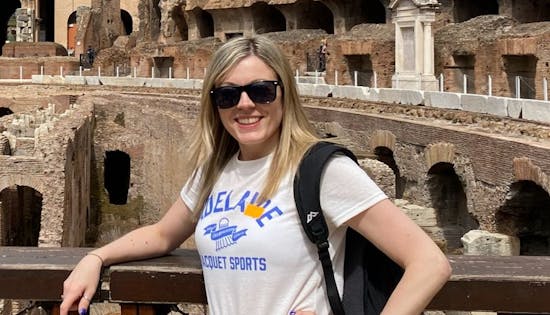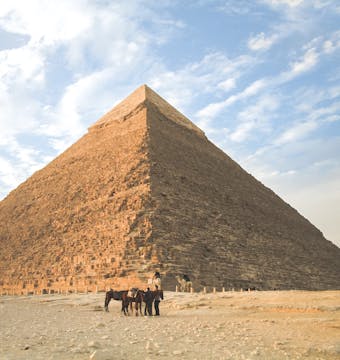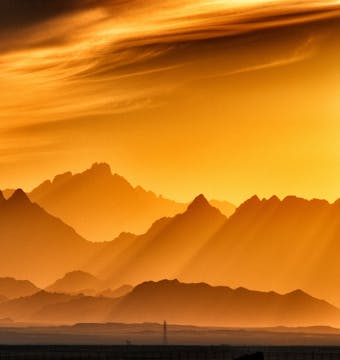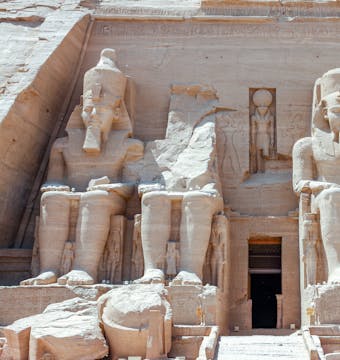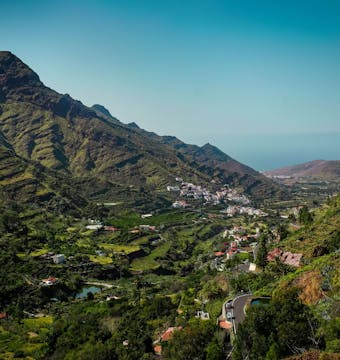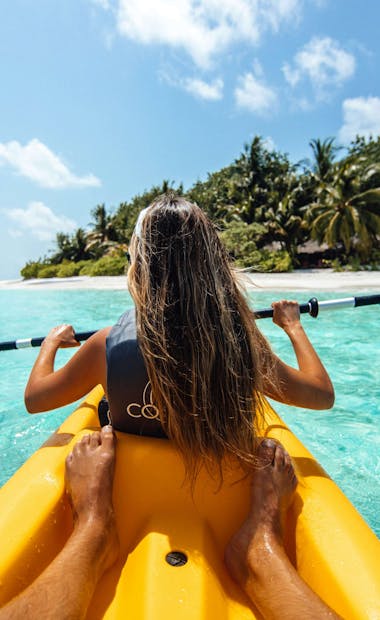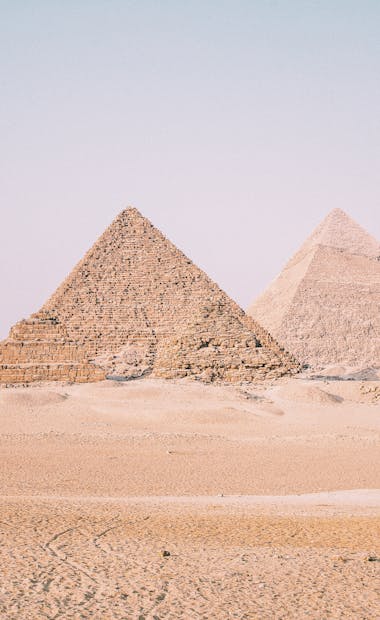
Egypt Pyramid Holidays & Tours
Explore the Pyramids of Egypt and the mysteries they offer!
Popular tours
- Save16%
 View Tour
View TourBest of Egypt - 8 Days
- Cairo to Cairo
- Age group: 12 - 100
- Max group size: 16
Was:£999From£841 - Save16%
 View Tour
View TourHighlights of Egypt - 14 Days
- Cairo to Cairo
- Age group: 12 - 100
- Max group size: 16
Was:£1,819From£1,531 - Save21%
 View Tour
View TourEgypt: Boats & Bazaars - 8 Days
- Cairo to Cairo
- Age group: 18 - 39
- Max group size: 18
Was:£599From£474 - Save35%
 View Tour
View TourKing Ramses Nile Cruise (And Optional Flight) - 13 Days
- Cairo to Cairo
- Age group: 15 - 99
- Max group size: 24
Was:£2,805From£1,834 - Save16%
 View Tour
View TourEgypt Family Holiday - 9 Days
- Cairo to Hurghada
- Age group: 5 - 99
- Max group size: 16
Was:£1,560From£1,313 - Save16%
 View Tour
View TourClassic Egypt - 8 Days
- Cairo to Cairo
- Age group: 15 - 99
- Max group size: 12
Was:£1,690From£1,422
Egypt Pyramid Tours
Welcome to an extraordinary journey through time and marvels, where ancient wonders stand as testaments to the ingenuity and grandeur of human civilization. Welcome to our travel agency website, where we invite you to explore the iconic Pyramids of Egypt, one of the world's most awe-inspiring destinations.
Nestled on the vast desert landscape along the banks of the Nile River, the Pyramids of Egypt have captivated travelers and scholars for millennia. These monumental structures, built by the ancient Egyptians as tombs for their pharaohs, continue to inspire wonder and fascination with their sheer size, precision craftsmanship, and enigmatic allure.
Join us as we delve into the mysteries of the Pyramids, tracing their storied history from the majestic Great Pyramid of Giza, the sole survivor of the Seven Wonders of the Ancient World, to the lesser-known but equally impressive pyramids scattered throughout Egypt's desert terrain.
Whether you're a history enthusiast, an adventure seeker, or simply captivated by the allure of ancient wonders, our travel agency is your gateway to unlocking the secrets of the Pyramids. From expertly guided tours led by knowledgeable Egyptologists to tailor-made itineraries that cater to your interests and preferences, we offer a range of immersive experiences designed to ignite your sense of wonder and discovery.
Embark on a journey with us as we unravel the mysteries of the Pyramids, where every step reveals a new layer of history, mythology, and architectural brilliance. Let our travel agency be your trusted companion as you embark on a once-in-a-lifetime exploration of Egypt's timeless treasures. The Pyramids await – are you ready to embark on the adventure of a lifetime?
When is the best time to visit the Pyramids?
The best time to visit the Pyramids of Egypt depends on various factors, including weather, crowd levels, and personal preferences. Here's a breakdown of the different seasons and their suitability for visiting the Pyramids:
Winter (November to February):
- Winter is considered one of the best times to visit the Pyramids due to the mild temperatures and comfortable weather conditions.
- Daytime temperatures range from around 20°C to 25°C (68°F to 77°F), making it pleasant for exploring the archaeological sites without the intense heat of summer.
- Winter is also the peak tourist season in Egypt, so expect larger crowds and higher prices for accommodations and tours.
Spring (March to May):
- Spring is another favourable time to visit the Pyramids, with mild temperatures and fewer crowds compared to the peak winter season.
- March and April offer pleasant weather, making it ideal for outdoor activities and sightseeing.
- Springtime also sees the desert landscape come to life with blooming flowers and vegetation, adding to the scenic beauty of the surroundings.
Autumn (September to October):
- Autumn provides a transition from the hot summer months to the cooler winter season, offering moderate temperatures and comfortable weather for visiting the Pyramids.
- September and October are particularly pleasant, with temperatures gradually becoming more comfortable after the summer heat.
- Like spring, autumn offers a balance between favorable weather conditions and manageable crowds, making it an excellent time to explore the Pyramids.
Summer (June to August):
- Summer in Egypt can be extremely hot, with temperatures often exceeding 40°C (104°F) in many parts of the country, including Cairo and the Giza Plateau where the Pyramids are located.
- While summer is considered the low tourist season, visiting the Pyramids during this time can be challenging due to the intense heat, making outdoor activities uncomfortable for extended periods.
- If you choose to visit during summer, it's advisable to plan your visits to the Pyramids early in the morning or late in the afternoon to avoid the hottest part of the day.
Ultimately, the best time to visit the Pyramids of Egypt depends on your tolerance for heat, preference for crowd levels, and flexibility in travel dates. Consider the factors mentioned above when planning your trip to ensure a memorable and enjoyable experience exploring these ancient wonders.
What should I wear when visiting the Pyramids?:
When visiting the Pyramids of Egypt, it's important to dress appropriately for the desert climate and the cultural norms of the region. Here are some recommendations for what to wear:
Loose, Lightweight Clothing: Opt for loose-fitting, lightweight clothing made from breathable fabrics such as cotton or linen. Long-sleeved shirts and pants can help protect your skin from the sun and prevent sunburn.
Modest Attire: Respectful attire is important when visiting religious or historical sites in Egypt. Both men and women should avoid clothing that is too revealing or tight-fitting. For women, consider wearing long skirts or pants and tops that cover the shoulders and cleavage. For men, long pants and shirts with sleeves are appropriate.
Comfortable Walking Shoes: Choose comfortable, closed-toe shoes suitable for walking on uneven terrain. Sneakers or sturdy sandals with straps are ideal for exploring the Pyramids and surrounding areas.
Sun Protection: Be sure to bring sun protection essentials, including a wide-brimmed hat or cap to shield your face from the sun, sunglasses to protect your eyes, and sunscreen with a high SPF rating to prevent sunburn.
Layers for Cooler Evenings: While daytime temperatures in the desert can be hot, evenings can be cooler, especially during the winter months. Pack a lightweight jacket or sweater to layer over your clothing for added warmth if needed.
Headscarf or Scarf: Consider bringing a lightweight scarf or headscarf to protect your head and neck from the sun, dust, and wind. This can also be useful for covering your head when visiting mosques or other religious sites.
Comfortable Backpack or Daypack: Carry a small backpack or daypack to hold essentials such as water, sunscreen, snacks, a camera, and any other personal items you may need during your visit.
By dressing appropriately for your visit to the Pyramids, you'll not only stay comfortable in the desert climate but also show respect for the local culture and customs.
How much time do I need to explore the Pyramids?
The amount of time needed to explore the Pyramids of Egypt can vary depending on several factors, including your level of interest in ancient history, the specific sites you want to visit, and whether you're visiting independently or as part of a guided tour. Here are some considerations to help you plan your visit:
Giza Plateau: The Giza Plateau, home to the Great Pyramid of Giza, the Sphinx, and other pyramids, is the most famous and frequently visited archaeological site in Egypt. To explore the main attractions thoroughly, including entering the Great Pyramid or visiting the Sphinx, you'll likely need at least half a day.
Additional Pyramids: In addition to the main pyramids at Giza, there are several smaller pyramids and mastabas (ancient tombs) in the surrounding area, such as those at the Saqqara necropolis. Visiting these additional sites may require an additional half-day or more, depending on your level of interest.
Guided Tours: If you're taking a guided tour of the Pyramids, the duration of the tour will depend on the specific itinerary and activities included. Guided tours typically range from a few hours to a full day, with options for both private and group tours.
Special Activities: If you're interested in special activities such as camel rides around the Pyramids, exploring the interior of the Great Pyramid, or attending sound and light shows in the evening, you'll need to allocate additional time accordingly.
Crowds and Queues: Keep in mind that the Pyramids can get crowded, especially during peak tourist seasons, which may affect the time needed to navigate the site and access certain attractions.
Overall, it's recommended to allow at least a full day to explore the Pyramids of Egypt thoroughly, especially if you want to visit multiple sites, take your time exploring, and avoid feeling rushed. However, if you have limited time, it's still possible to experience the highlights of the Pyramids in a few hours, focusing on the main attractions at Giza. Regardless of how much time you have, be sure to plan ahead, arrive early to beat the crowds, and make the most of your visit to this iconic archaeological site.
Are there any safety concerns at the Pyramids?
When visiting the Pyramids of Egypt, it's essential to be aware of potential safety concerns to ensure a safe and enjoyable experience. While the Pyramids themselves are generally safe to visit, there are a few considerations to keep in mind:
Scams and Touts: Like many tourist destinations, the Pyramids can attract individuals looking to take advantage of visitors. Be cautious of scams, such as unofficial tour guides offering services, aggressive vendors, or individuals posing as guards or officials. Stick to reputable tour operators and official ticket booths to avoid scams.
Pickpocketing and Theft: As with any crowded tourist attraction, there is a risk of pickpocketing and theft, particularly in crowded areas or on public transportation. Keep your belongings secure at all times, use a money belt or anti-theft bag, and be vigilant in crowded spaces.
Camel and Horse Ride Scams: Some visitors may encounter scams involving camel or horse rides around the Pyramids. Be wary of inflated prices, aggressive touts, and individuals demanding payment for services not agreed upon beforehand. If you choose to take a ride, negotiate the price upfront and only use reputable operators recommended by your hotel or tour guide.
Heat and Sun Exposure: The desert climate around the Pyramids can be extremely hot, especially during the summer months. Take precautions to protect yourself from heat-related illnesses by staying hydrated, wearing sunscreen, and seeking shade when necessary. Consider visiting early in the morning or late in the afternoon to avoid the hottest part of the day.
Physical Hazards: While exploring the Pyramids and surrounding areas, be mindful of uneven terrain, steep steps, and other physical hazards. Wear sturdy, closed-toe shoes with good traction, and take care when climbing on or around the ancient structures.
Political Unrest: While Egypt is generally safe for tourists, political unrest or demonstrations can occur sporadically. Stay informed about current events, follow local news sources, and avoid areas where protests or disturbances are taking place.
Overall, by staying vigilant, using common sense, and being aware of your surroundings, you can minimize safety risks and enjoy a memorable visit to the Pyramids of Egypt. It's also a good idea to check travel advisories from your home country's government before traveling to Egypt for any updated safety information or travel warnings.
Can I enter the Pyramids?
Yes, visitors are allowed to enter some of the pyramids in Egypt, including those at the Giza Plateau near Cairo. However, access to the interior chambers of the pyramids is limited and subject to specific regulations. Here's what you need to know about entering the pyramids:Great Pyramid of Giza (Pyramid of Khufu/Cheops): The Great Pyramid is the largest and most famous pyramid in Egypt. Visitors are allowed to enter the Great Pyramid, but access to the interior chambers, including the King's Chamber and Queen's Chamber, may be restricted at times. Entry to the Great Pyramid requires purchasing a separate ticket in addition to the general admission ticket for the Giza Plateau.
Pyramid of Khafre (Pyramid of Chephren): The Pyramid of Khafre, the second-largest pyramid at Giza, also allows limited access to its interior chambers. However, entry to the chambers inside Khafre's Pyramid is less common compared to the Great Pyramid, and availability may vary.
Pyramid of Menkaure (Pyramid of Mykerinos): The smallest of the three main pyramids at Giza, the Pyramid of Menkaure, occasionally allows visitors to enter its interior chambers. However, access is less common and subject to restrictions similar to those of the other pyramids.
Other Pyramids: There are several smaller pyramids and mastabas (tombs) in the vicinity of the main pyramids at Giza. Some of these structures allow limited access to their interior chambers, but availability may vary.
Guided Tours: To enter the pyramids, visitors typically need to purchase tickets at the entrance to the Giza Plateau. Guided tours of the pyramids are available, providing insight into their history, architecture, and significance. Some guided tours may include access to the interior chambers of certain pyramids as part of the itinerary.
Photography and Videography: While photography and videography are generally permitted inside the pyramids, there may be restrictions or additional fees for using cameras or tripods. Flash photography may be prohibited in certain areas to protect the ancient artifacts and structures.
Before planning your visit to the pyramids, it's advisable to check with official sources or tour operators for the latest information on entry requirements, ticket availability, and any restrictions on accessing the interior chambers of the pyramids.
What other attractions are nearby?
In addition to the iconic Pyramids of Giza and the Great Sphinx, there are several other attractions and points of interest near the Giza Plateau that visitors can explore. Here are some notable attractions nearby:
The Sphinx: Adjacent to the Pyramids of Giza, the Sphinx is a majestic limestone statue with the body of a lion and the head of a human. It is one of Egypt's most recognizable and enigmatic monuments, believed to have been built during the reign of Pharaoh Khafre.
Solar Boat Museum: Located near the Great Pyramid, the Solar Boat Museum houses the reconstructed solar boat of Pharaoh Khufu. The boat, made of cedar wood, was buried near the Great Pyramid and was intended to transport the pharaoh's soul across the heavens in the afterlife.
Valley Temple: Situated next to the Sphinx, the Valley Temple is a well-preserved mortuary temple believed to have been used for the mummification and burial rituals of the pharaohs. It is constructed from massive limestone blocks and features impressive architectural elements.
The Pyramid of Djoser at Saqqara: A short distance from the Giza Plateau, the Pyramid of Djoser at Saqqara is one of Egypt's oldest pyramids, dating back to the 27th century BCE. It is renowned for its innovative step pyramid design and is part of the larger Saqqara necropolis, which contains numerous ancient tombs and monuments.
Memphis: Located nearby, Memphis is the ancient capital of Egypt and a UNESCO World Heritage Site. Visitors can explore the ruins of this once-great city, including the colossal statue of Ramses II and the alabaster sphinx.
Dahshur Pyramids: South of Giza, the Dahshur necropolis is home to several pyramids, including the Bent Pyramid and the Red Pyramid. These pyramids are notable for their unique architectural features and are less visited than the Pyramids of Giza, offering a quieter and more intimate experience.
Cairo: Egypt's bustling capital city is just a short drive from the Giza Plateau and offers a wealth of cultural, historical, and culinary attractions. Visitors can explore the Egyptian Museum, Khan El Khalili Bazaar, Citadel of Salah al-Din, and much more.
These are just a few examples of the many attractions near the Pyramids of Giza. Whether you're interested in ancient history, archaeological sites, or vibrant city life, the area surrounding the Pyramids offers a rich tapestry of experiences waiting to be discovered.
How do I avoid crowds at the Pyramids?
Avoiding crowds at the Pyramids of Giza can enhance your experience and allow for more peaceful exploration of these iconic landmarks. Here are some tips to help you minimize crowds and make the most of your visit:
Visit Early in the Morning: Arriving early in the morning, shortly after the site opens, is one of the most effective ways to beat the crowds. Most tourists tend to arrive later in the day, so by arriving early, you can enjoy the Pyramids with fewer people around.
Visit During Off-Peak Seasons: Consider visiting the Pyramids during off-peak seasons, such as late spring or early autumn, when tourist numbers are lower. Avoid major holidays and school vacation periods, as these times tend to be more crowded.
Choose Weekdays Over Weekends: Weekends typically attract more visitors to tourist sites, including the Pyramids. If possible, plan your visit for a weekday when tourist numbers are likely to be lower.
Explore Lesser-Known Areas: While the main attractions like the Great Pyramid and the Sphinx are must-see landmarks, consider exploring lesser-known areas within the Giza Plateau, such as smaller pyramids or tombs. These areas are often less crowded and offer opportunities for quieter exploration.
Book an Early Access or Private Tour: Some tour operators offer early access tours or private tours of the Pyramids, allowing you to enter the site before it opens to the general public or explore with a smaller group. While these tours may come at an additional cost, they can provide a more intimate and crowd-free experience.
Be Strategic with Your Timing: If you're unable to visit early in the morning, consider planning your visit for later in the afternoon, closer to closing time. Many tourists start to leave the site in the late afternoon, which can result in smaller crowds during the final hours of the day.
Explore Alternative Viewing Points: Instead of viewing the Pyramids from the main entrance or designated viewpoints, consider exploring alternative vantage points. Some nearby hotels, restaurants, or elevated areas offer panoramic views of the Pyramids without the crowds.
Patience and Flexibility: Despite your best efforts, crowds are sometimes unavoidable at popular tourist sites like the Pyramids. Practice patience, be flexible with your itinerary, and try to focus on enjoying the experience rather than getting frustrated by the crowds.
By following these tips and planning your visit strategically, you can maximize your chances of enjoying a crowd-free or less crowded experience at the Pyramids of Giza.
Are there any cultural or etiquette considerations I should be aware of?
When visiting the Pyramids of Giza and other historical sites in Egypt, it's important to be mindful of cultural norms and etiquette to show respect for the local customs and traditions. Here are some cultural considerations to keep in mind:
Dress Modestly: Egypt is a conservative country, and modest attire is appreciated, especially when visiting religious or historical sites. Both men and women should dress modestly, covering their shoulders, chest, and knees. Loose-fitting clothing made from lightweight fabrics like cotton or linen is ideal for staying cool in the desert climate while adhering to local customs.
Remove Shoes When Entering Religious Sites: If you visit mosques or other religious sites, it's customary to remove your shoes before entering. Look for signs or follow the lead of locals to determine whether shoe removal is required.
Respectful Behaviour: Show respect for the historical significance of the Pyramids and other ancient monuments by refraining from climbing on them or touching them unless permitted by signs or authorities. Additionally, avoid littering, defacing property, or engaging in disruptive behaviour that may detract from others' experiences.
Ask Permission Before Taking Photos: While photography is generally permitted at the Pyramids, it's courteous to ask for permission before taking photos of individuals, particularly locals or religious figures. Some people may prefer not to be photographed, so always respect their wishes.
Interact Respectfully with Locals: Egyptians are known for their hospitality and friendliness towards tourists. Engage with locals respectfully, greet them with a friendly "hello" or "salam alaikum" (peace be upon you), and be open to learning about their culture and customs.
Respect Religious Observances: Be aware of Islamic prayer times, particularly during Ramadan, when Muslims fast from dawn to dusk. Avoid eating, drinking, or smoking in public during fasting hours out of respect for those observing the fast.
Bargain Respectfully: Bargaining is common in Egypt, especially when shopping in markets or souks. However, do so respectfully and with a smile, acknowledging the skill and craftsmanship of the vendors. Keep in mind that haggling is part of the cultural experience but avoid aggressive or disrespectful behaviour.
Learn Some Basic Arabic Phrases: While many Egyptians speak English, learning a few basic Arabic phrases can go a long way in showing respect for the local language and culture. Simple greetings like "salam alaikum" (peace be upon you) and "shukran" (thank you) are appreciated by locals.
By observing these cultural considerations and practicing respectful behaviour, you can ensure a positive and meaningful experience while visiting the Pyramids of Giza and other historical sites in Egypt.
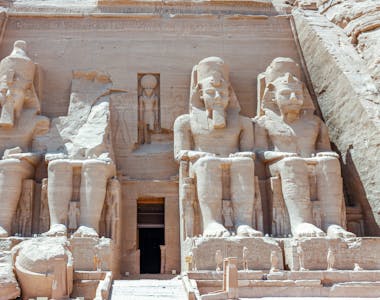
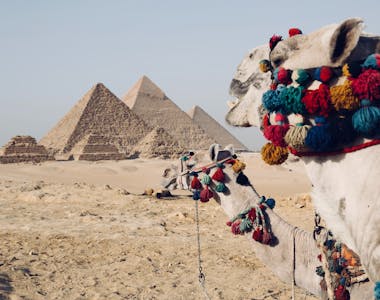
Egypt Pyramid Tours Highlights
Book With Confidence
Monthly Payments
Spread the costs with no interest or additional fees
Best Price Guarantee
We won't be beaten on price. If you find this adventure at a lower price please get in touch!
Reserve now & pay later
Reserve your adventure today and pay later, free of charge
ATOL protected
Book with confidence
Hold your space today, for free
or book your trip with a deposit and then pay the rest in instalments.
Reserve your flights with us
Add flights to your booking and we'll take care of the rest. You'll get 24/7 support from our team & ATOL protection.
Speak to our experts
Call or email our expert team to find out more and help with ideas and planning.
